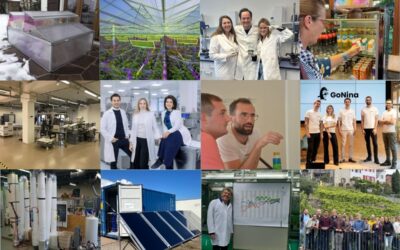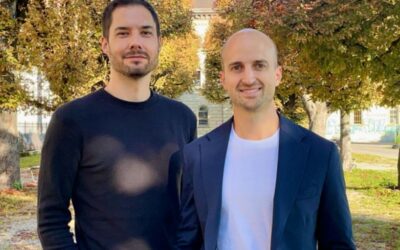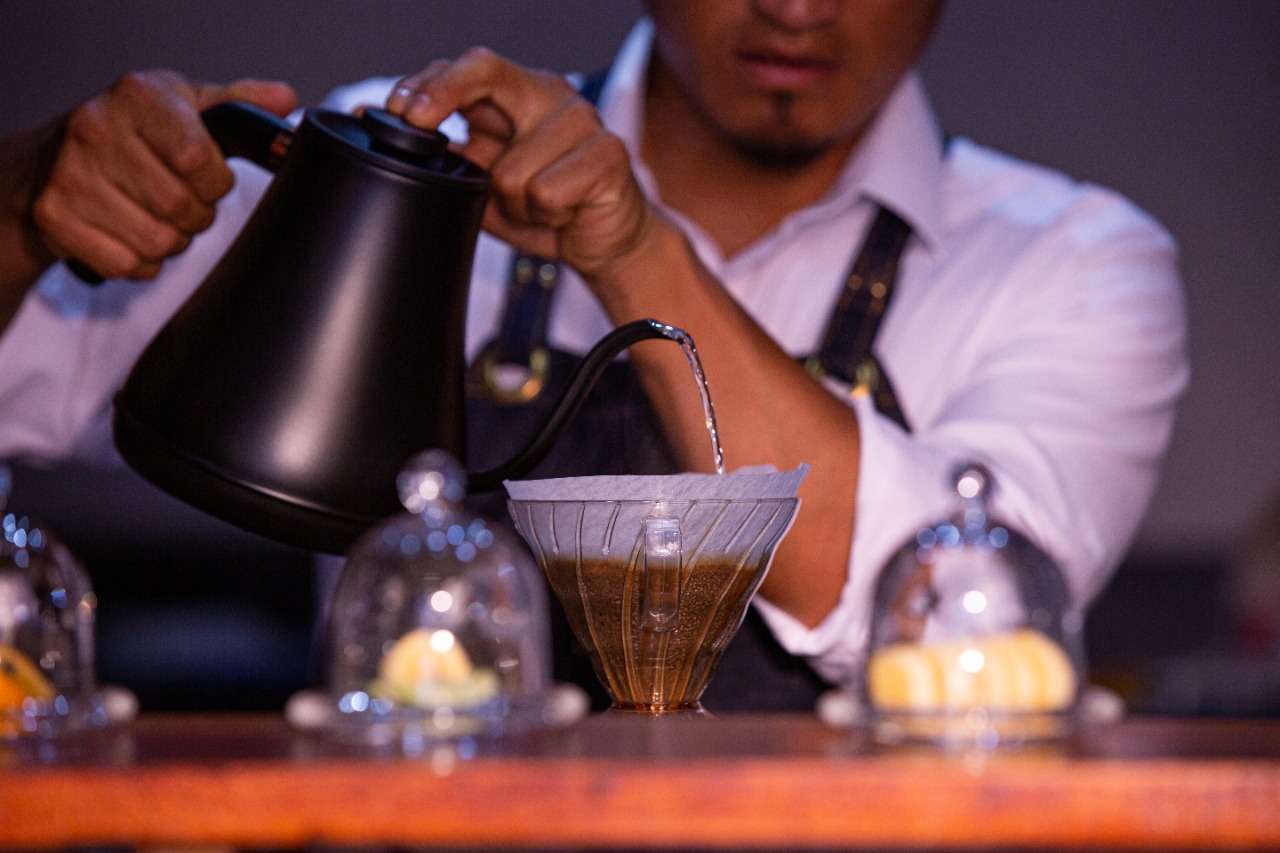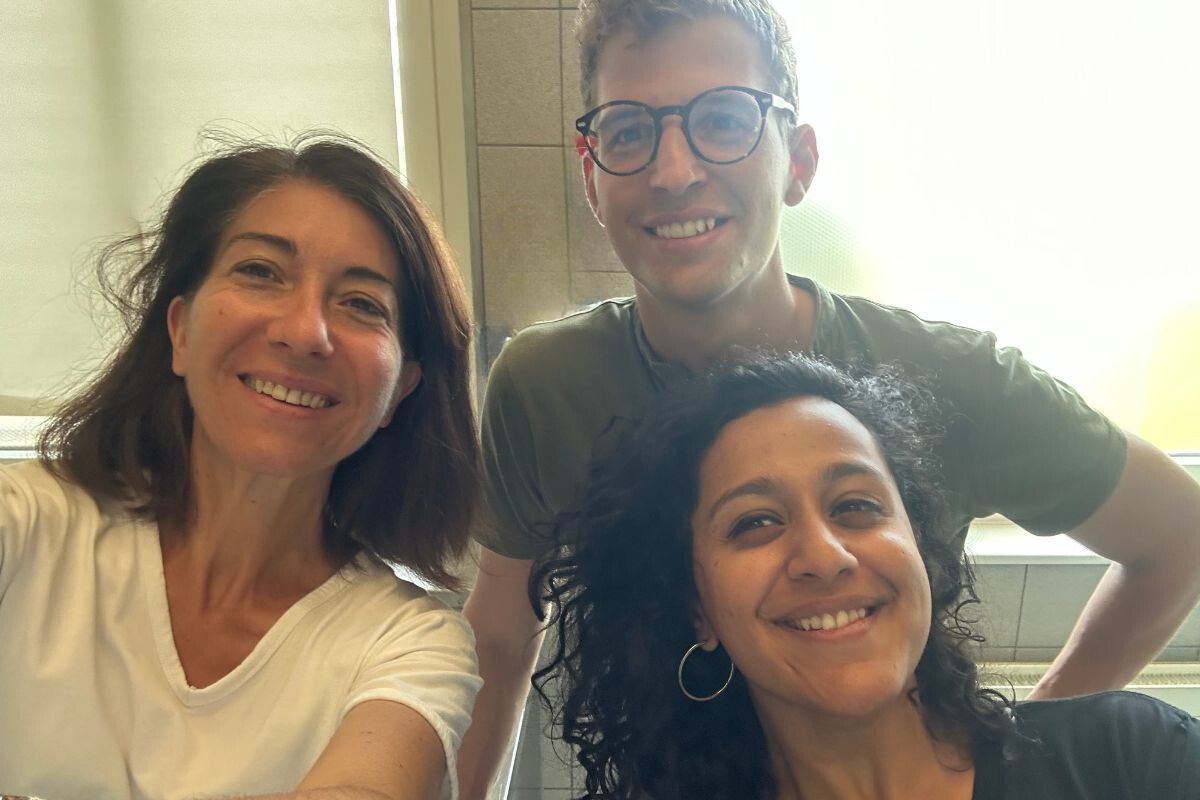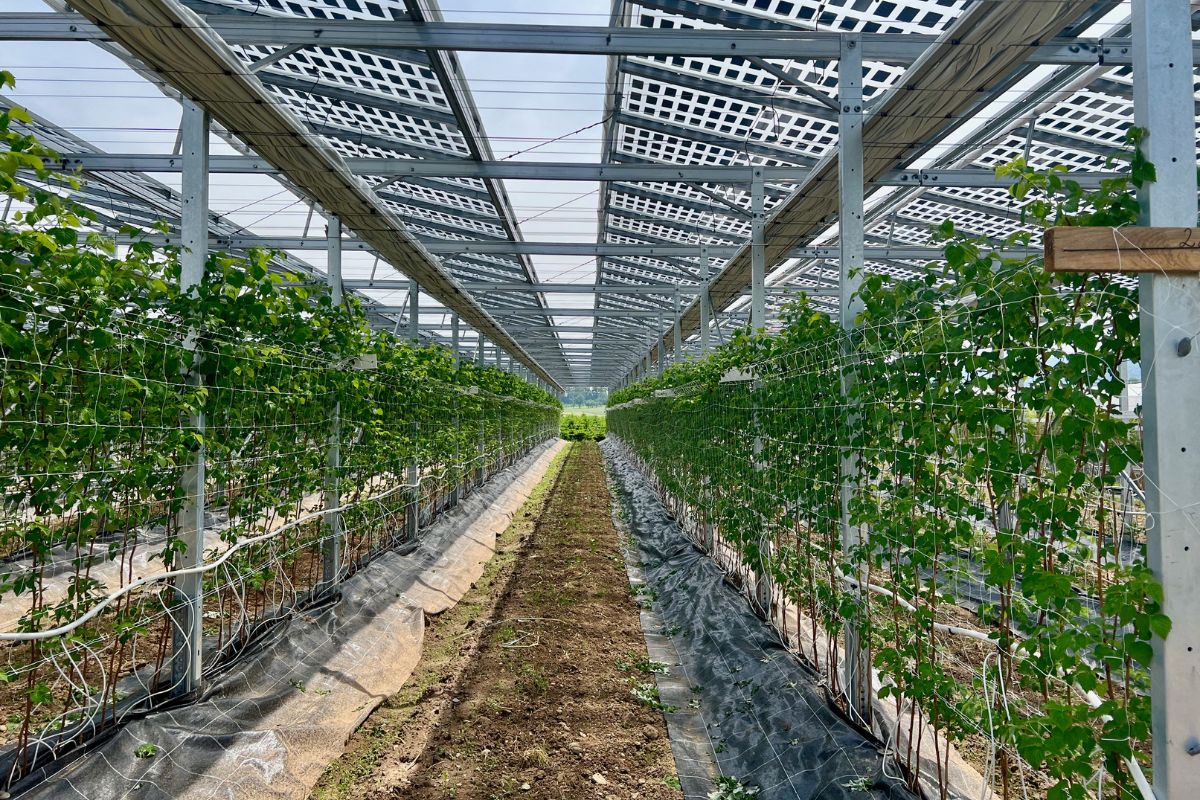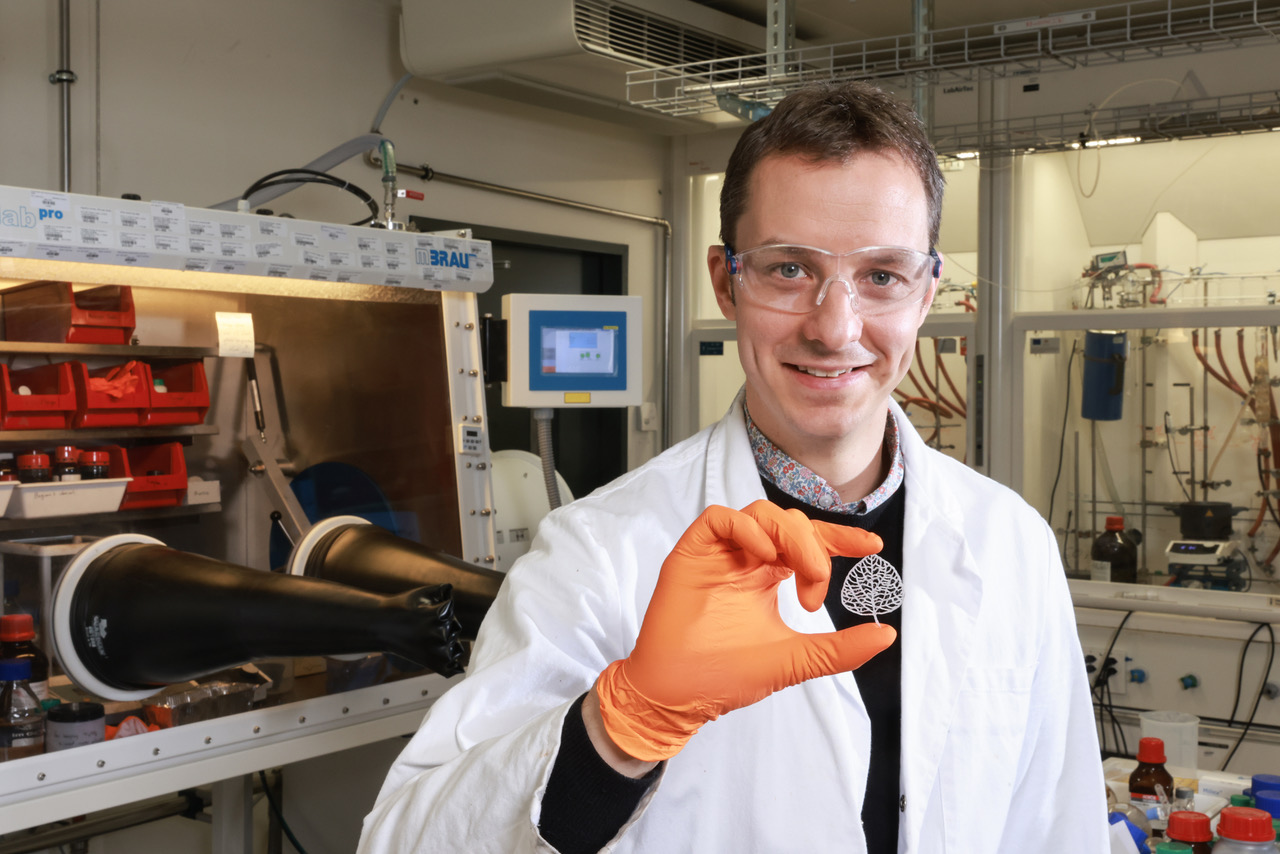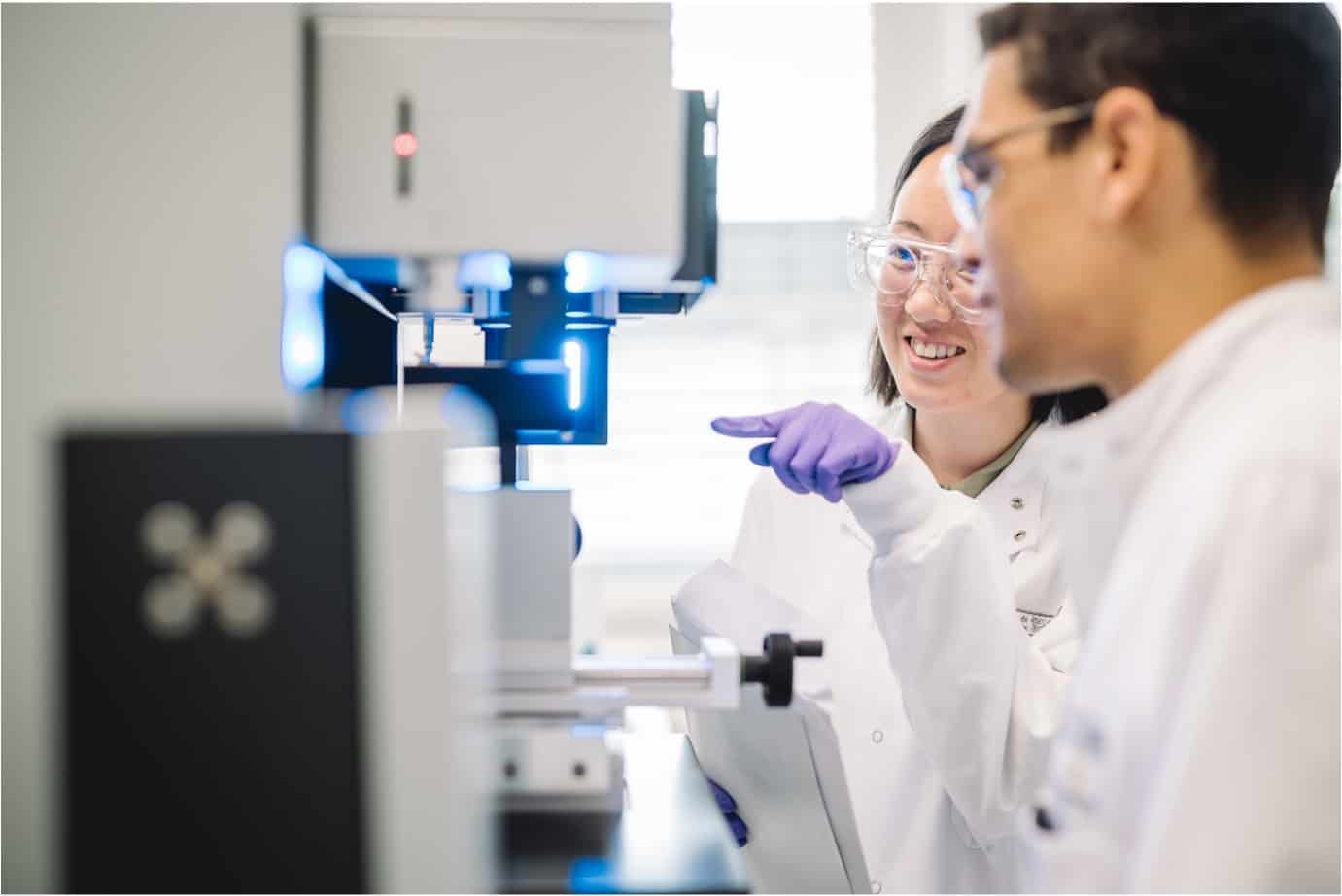We often hear that the future of food...
“Fast decisions, culture and partnerships”: Charlotte Ducrot from Innovaud on successful scaling in Switzerland
“Fast decisions, culture and partnerships”: Charlotte Ducrot from Innovaud on successful scaling in Switzerland
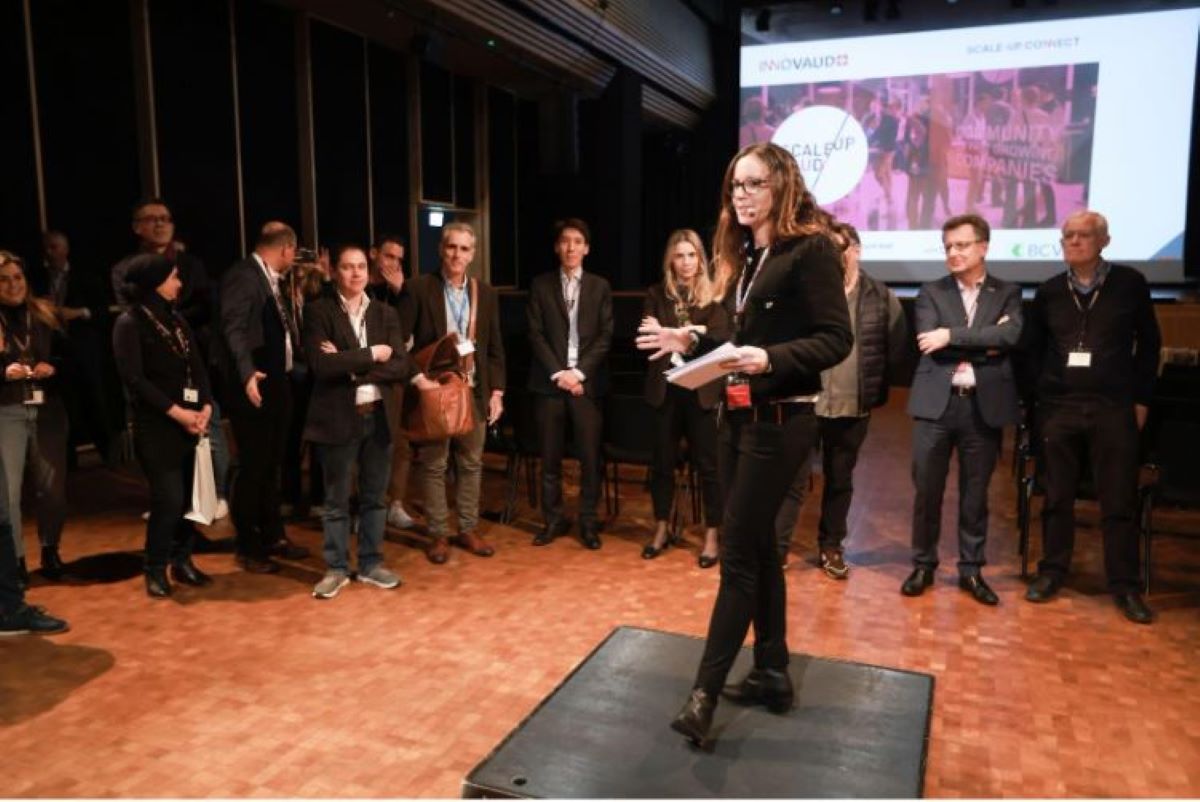
In this second article in our series on scaling in Switzerland, we met with Charlotte Ducrot, Innovaud’s Key Account Manager for Scale-ups & Growth, to better understand how the innovation ecosystems can address the unique challenges that scaleups face.
Charlotte Ducrot didn’t set out to work with entrepreneurs. But each country she lived in exposed her to diverse and innovative ecosystems – and the creative minds that worked within them. From helping French businesses set up in Morocco and empowering entrepreneur stories in Colombia, to working alongside incubators and accelerators in Peru, Charlotte found herself being drawn to help founders and their teams at a critical stage in their growth.
“I was always inspired by founders’ energy and passion for what they do,” reflects Charlotte. “There are lots of programmes targeted at startups. Once they’ve proven that they have a product/market fit and a model that can be replicated at scale, they’re ready for a different type of support.”
Charlotte saw again and again that this critical development phase was challenging. “Companies suddenly have to deal with key questions around growing their team, putting in place some processes and maintaining their culture. When you’re scaling you need to hire fast. It’s a big transformation from a small group of people where everyone works with everyone, to a much larger and sometimes geographically spread team. It naturally starts to change the way you communicate”.
Easing the transition from startup to scaleup
It was this realisation, coupled with a desire to reconnect with her local ecosystem, that led Charlotte to her current position at Innovaud, an innovation and investment promotion agency for the canton of Vaud. In this role, she oversees two programmes that provide promising companies with the support they need to grow.
“ScaleupVaud is a community that brings c-level members of scaling companies together so that they can share their challenges and solutions and learn from one another. We currently have “circles” for CEOs, CTOs, CFOs and HR leads which are complemented by monthly networking sessions and annual conferences on key scaling topics.”
While this peer-to-peer support is incredibly valuable, Charlotte and her team also recognised that they could do more, especially for companies that are one step shy from qualifying as a scale-up. So they teamed up with IMD to develop the LeadiNNg to Scale-up Programme, designed specifically for CEOs who have just closed their Series A funding round.
“We’ve had two cohorts so far and the feedback we’ve got is really positive. The programme is made up of ten sessions on scaling topics, including organisational design, leadership and strategic scaling. The small cohort of founders meet up regularly so they get to know each other very well. They are from a variety of sectors but they’re all at the same stage in their development, so they also learn a lot from each other. It’s a way of creating a community.”
Starting with Vaud-based businesses in 2022, the LeadiNNg to Scale-up Programme was then opened up to Swiss-wide businesses this year and will now be opened up to international companies. Participants can attend in person or virtually and use the opportunity to assess if the Swiss ecosystem is the right fit for their businesses.
Success stories
The Scale-up Vaud Community has had several companies from the Swiss AgTech and FoodTech sector. “Ecorobotix is a really interesting startup to work alongside because they were ahead of their time right from the beginning. They’ve developed an AI-powered spraying robot for targeted application of herbicides, fungicides, insecticides and fertiliser. At the time, farmers weren’t yet ready to have a robot in the fields, so Ecorobotix adapted their solution. Now they’ve raised 52 million to expand into the United States and Latin American markets.”
Charlotte also believes that people are a critical element of success. “Ecorobotix’s CFO and co-founder, Aurélien Demaurex, has also become an Innovaud Board Member and a Member of Parliament and is increasingly involved in shaping a positive legislative environment for entrepreneurs. This is a great way for him to share his knowledge to benefit other entrepreneurs.”
Connecting scaleups to new markets is another key part of Charlotte’s role in supporting their scaling process. “Earlier this year, we took CleanGreens’ CEO to Singapore. The company has already set up their unique aeroponic solution in Switzerland, France, and Kuwait, but they’re ready for further expansion and made some really good connections on the trip.”
Charlotte has seen hundreds of businesses complete the transformation from startup to scaleup. So what, in her opinion, is the recipe for scaleup success? “Obviously it varies from business to business, but I think there are three key points. The ability to make fast decisions while remaining focused is a really important one. Developing a company culture that will support them on their growth journey is also critical, as is making the right connections. It’s hard to scale on your own, so the right partnerships are critical.”
Scaling up in Switzerland
Charlotte has worked in 8 different innovation ecosystems over the course of her career so far, but she believes that Switzerland has something unique to offer. “When I moved back to Switzerland, the thing that really stood out for me was the level of research behind the Swiss startups. These companies have serious technology! In other countries I recently lived in, companies often focus on digital solutions for consumers which may mean they can test faster. In Switzerland, the technology might take more time to develop, but the results are very strong and if you find the right market, you can build a very solid company that will have a significant impact.”
Switzerland also has the right infrastructure to support scaleup growth. “There are some really strong verticals in HealthTech, FoodTech, and CleanTech with sector-specific initiatives that drive ecosystems in these spaces. Public grants and research funding and a strong political will also help drive entrepreneurship and innovation.”
The best is yet to come
Charlotte’s journey with entrepreneurs is a constant source of inspiration. “This is what gets me up in the morning. I love listening to what scaleups need and connecting them with the right tools. Innovation and technology provide impactful solutions to some of our world’s most pressing problems.”
So what’s next for her and her team? “This year we’re focusing on developing new programmes and services. We want to give Swiss scaleups more visibility on the international stage and address a few other gaps in our existing programmes. There’s so much demand for support in this area, so we’re definitely not done yet!”
Connect with Charlotte or find out more and apply for the 2024 edition of the LeadiNNg to Scale-up Programme here.
Valley partner looking for funding to scale?
Looking for a new team member?
Latest News
From pivot to purpose: how Switzerland turns careers into food system change
Five years of SFNV: Meet the faces behind the Valley
Innovation in food systems requires...
Five years of innovation: Six Swiss startups share their journeys
This year, Swiss Food & Nutrition...
FOOD FOUNDERS Studio raises CHF 1.2M, launches foodtech venture to address plant-based taste challenges
Two years after its founders set out...


